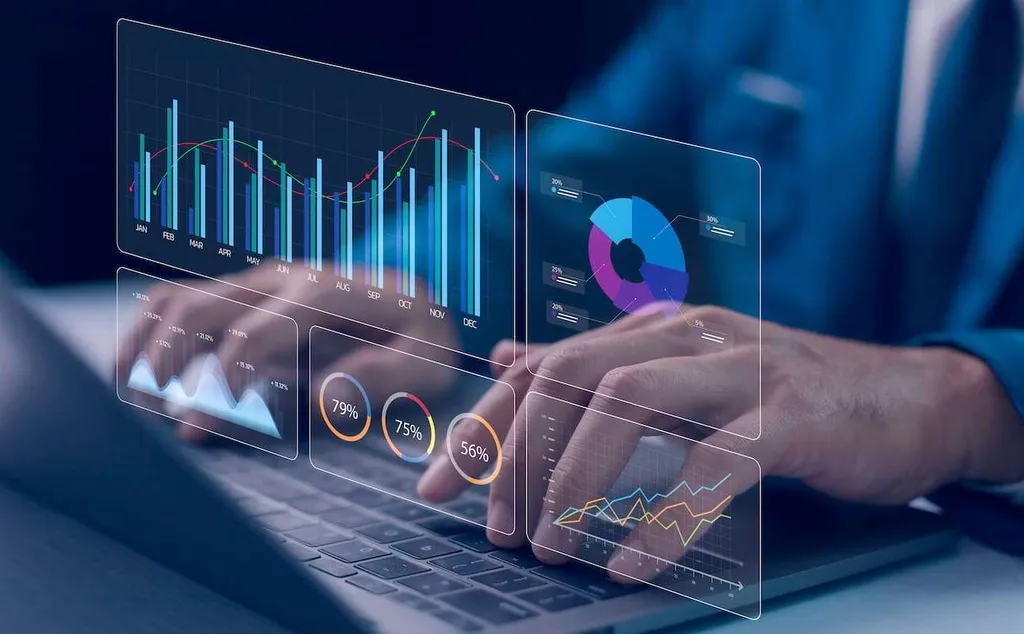CFOs face growing pressure to close the books faster and provide real-time financial insights. Yet most finance teams are still stuck doing things the old way. It creates real problems. Deadlines get missed, and errors slip through that need fixing after the books are supposedly closed. 97% of CFOs experience significant concerns regarding their ability to meet reporting deadlines. Now, the autonomous accounting can be the answer. AI is handling accounts payable and invoice processing, with humans needing to intervene only minimally. Accounting automation AI is transforming financial operations. These systems free finance professionals to concentrate on strategic initiatives and high-value analysis rather than time-consuming administrative work.
What is Autonomous Accounting, and Why Does it Matter?
Autonomous accounting uses AI to handle core tasks with minimal human input. The key difference is that it learns as it goes, rather than just following a script. Traditional automation instruments, robotic process automation, and optical character recognition (OCR) do exactly what you fine-tune them to do, nothing more. When things change, someone has to reprogram them. Autonomous accounting leverages AI to make independent decisions based on organizational data. These systems handle complex processes like automated transaction categorization (bank feeds automatically sorted into expense accounts), intelligent invoice workflows (vendor bills processed and approved based on purchase orders), and account matching (credit card transactions reconciled against receipts) with minimal human oversight.
The result of automation in finance is significant operational improvement:
- Manual errors drop.
- Processing speeds up.
- Your team transitions from manual task execution to strategic value creation.
For your business, AI in accounting translates into improved compliance, clearer insights, and streamlined operations.
Key Technologies Enabling Autonomous Accounting
Artificial intelligence takes center stage. It makes decisions based on data patterns and past experiences. It’s what gives these systems their decision-making power.
Machine learning builds on that foundation. The more data it processes, the more effective it becomes at its job. Your autonomous accounting system improves with experience.
Robotic process automation (RPA) takes care of all repetitive tasks which take hours. It just runs these processes automatically, with no human intervention required.
Big data analytics helps you understand things better. It works with very large amounts of information to find important patterns which may be invisible to humans.
How Autonomous Accounting Transforms Business Operations
Operational efficiency gets more effective as routine tasks get handled automatically. Data processing, invoice reconciliation, bookkeeping, all those time-consuming activities that used to consume your team’s working hours are now automated. Human error decreases, and your team can focus on work that truly matters.
Accounting becomes continuous rather than periodic. With the power of artificial intelligence and accounting, your financial data stays current and accessible, which transforms forecasting and planning capabilities.
Finance automation eliminates manual errors that create compliance headaches and data inconsistencies across your systems. Your processes follow the same rules every time, automatically generating clean audit trails and regulatory documentation.
But such a digital transformation goes beyond technology. You’re rebuilding how your entire organization operates. Finance becomes the team that provides instant insights when other departments need them.
Benefits of Implementing Autonomous Accounting
With autonomous accounting, three of the toughest challenges in financial operations are finally resolved.
- Financial accuracy. You stop second-guessing whether that monthly report is accurate because the system ensures correctness of the results. Your decisions are built on solid data.
- Time and cost reduction. Accounts are checked immediately, and everything is reconciled almost without your participation. You do not waste time on paperwork, but can focus on important things.
- The system will also help comply with all requirements. If there are problems, it warns them before escalation, for example, during inspections or with regulations. Thanks to real-time reporting, you always know exactly where everything is.
These advantages work together. When all financial processes run smoothly, your chief financial officer (CFO) can make everything even more flexible and fast.
Challenges and Considerations for Autonomous Accounting
Autonomous accounting delivers real value, but getting there isn’t easy. Several challenges demand your attention. Data security tops the list: your accounting data flows through automated systems, making protection critical. A breach here is potentially catastrophic for your business.
System integration can be challenging. Your legacy financial software probably won’t be able to integrate with new autonomous accounting platforms. It takes significant planning and technical expertise to ensure everything functions properly.
There’s also ethical AI. People worry that automation could lead to job losses due to the impact that changes in accounting could have on their team roles. So you need to find a balance between new technology and developing people’s skills.
Collaboration is key. Your teams need to work together to align accounts payable (AP) process and ensure accurate financial statements. If they don’t, resistance within your organization will hold up the process. Employees often don’t want to embrace new technology if it changes their usual responsibilities. So you need to manage these changes carefully and in stages.
Tips and Reminders for Adopting Autonomous Accounting
Begin with a solid strategy and run pilot projects first. Testing small gives you a chance to spot problems and fix them before rolling out company-wide. Also, your team needs proper training to make the most of these new accounting innovation tools. Create an environment where people feel comfortable embracing change rather than fearing it. Innovation happens when your staff feels empowered to try new approaches. Select autonomous accounting tools that scale seamlessly as your business grows. Most finance leaders make this mistake: they choose solutions for where they are today, not where they’ll be in two years. Smart move: Think ahead and get systems built for scale from day one.
In the future, agentic AI for finance and accounting will obsolete traditional accounting tasks. AI is constantly evolving, learning from old data, and will provide even more accurate information about your financial situation. Therefore, it is worth paying attention to BooksTime’s insights to learn more about new accounting technologies and digital adoption. Information about the latest developments in this area will help your organization remain competitive in the future of accounting.


















